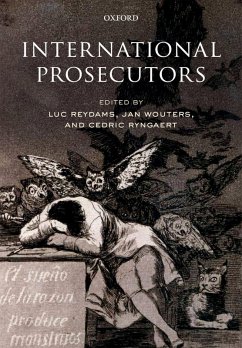This volume examines the prosecution as an institution and a function in a dozen international and hybrid criminal tribunals, from Nuremberg to the International Criminal Court. It is the result of a sustained collaborative effort among some twenty scholars and (former) tribunal staffers. The starting point is that the prosecution shapes a tribunal's practice and legacy more than any other organ and that a systematic examination of international prosecutors is therefore warranted. The chapters are organized chronologically, according to the successive phases of the life of the institution and the various stages of the trials. The analysis includes each institution's establishment, mandate and jurisdiction, as well as the prosecutorial framework and strategy, the prosecutor's external relations and the completion of the institution's work. The book also considers the prosecutors' independence and impartiality, and their accountability for their decisions. The volume thus provides a comprehensive picture of the mandate, organization, and operation of the prosecution in international criminal trials. As the first comprehensive study of an international legal actor whose decisions have widespread political repercussions, this book will be essential reading for all with an interest in international criminal justice.
Dieser Download kann aus rechtlichen Gründen nur mit Rechnungsadresse in A, B, BG, CY, CZ, D, DK, EW, E, FIN, F, GR, HR, H, IRL, I, LT, L, LR, M, NL, PL, P, R, S, SLO, SK ausgeliefert werden.


